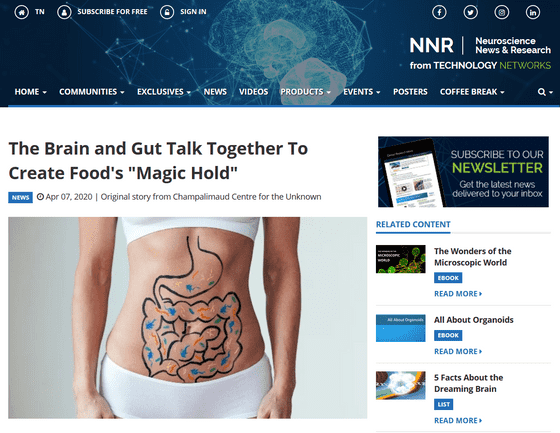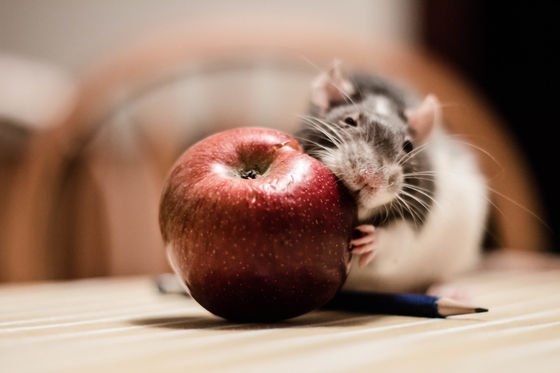It turned out that the internal organs also 'evaluate food' like taste, affecting the judgment of what to eat

Past studies have shown that the bowel's effect on human emotions and moods is so great that it can be described as a '
The Brain and Gut Talk Together To Create Food's 'Magic Hold' | Technology Networks
https://www.technologynetworks.com/neuroscience/news/the-brain-and-gut-talk-together-to-create-foods-magic-hold-333144
A major organ plays an unprecedented role in choosing what you eat
https://www.inverse.com/mind-body/gut-brain-axis-controls-food-choice
The Brain and Gut Talk Together To Create Food's 'Magic Hold' | Technology Networks
https://www.technologynetworks.com/neuroscience/news/the-brain-and-gut-talk-together-to-create-foods-magic-hold-333144

According to Albino Oliveira Maia, a neurologist at the
The second is an important learning process in determining what to eat in the future, which Oliveira Maia calls 'learning after ingestion.' There is no way to see what the taste of the food that has already been digested is, but Oliveira Maia has a big influence on the individual's food preference by somehow evaluating the nutritional value of the food by the body. I thought
Therefore, the research group of Oliveira Maia et al. Conducted an experiment using mice to examine the effect of 'learning after ingestion'. In this experiment, the mouse is shown to have two levers, and when the mouse presses one lever it gives a 'high calorie feed' and when the other lever is pressed it gives a 'low calorie feed'. Moreover, when feeding, the mice were not fed, but were directly injected into the stomach of the mice so that the mice could not feel the taste.
As a result of the experiment, it was clearly possible that the mouse pushed the lever of the high-calorie food, despite the fact that it was not possible to taste food by taste. This means that the feeding preference of the mouse was determined by 'evaluation of nutritional value by visceral organs, not taste'.
The research group then examined specifically which internal organs are assessing nutritional value. Oliveira Maia and his colleagues especially paid attention to the liver. Although it is well known from previous studies that the

by Sasha the Okay Photographer
Oliveira Maia said of the result: 'The gut doesn't have enough information about the nutritional value of the food it is digesting, but the liver plays an important role in filtering the blood that flows from the large intestine to store nutrients. In other words, the liver is in a good position to function as a nutrient sensor that represents the body. '
Furthermore, when the research group investigated the function of the dopaminergic nerves in the brain, it was also found that the dopaminergic nerves have a slow response in mice in which the vagus nerve that connects the liver and the brain is damaged.
Regarding these results, co-author of the paper, Louis Costa, said, 'For example, it is known that the dopaminergic nerve acts on the reward system of the brain even when tasting sweet confectionery with the tongue. When they reach the internal organs, it became clear that the dopaminergic nerves are activated, which promotes food-seeking behaviors, '' he said. I expressed the view that there is.
`` It's too early to make a decision in this study alone, but this finding suggesting a relationship between dopamine receptors and obesity may help us better understand eating disorders, '' Oliveira Maia said. I am thinking. '
Related Posts:







